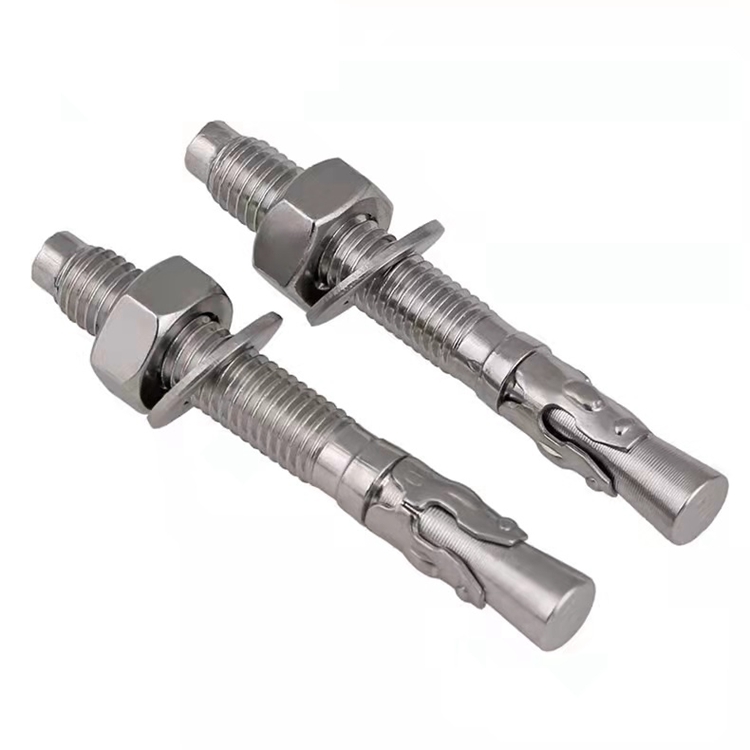buy astm a320 gr l7 stud bolt
Dec . 12, 2024 09:28 Back to list
buy astm a320 gr l7 stud bolt
Understanding ASTM A320 GR L7 Stud Bolts A Comprehensive Guide
When it comes to industrial fasteners, stud bolts play a vital role in ensuring the structural integrity and safety of various applications. Among the myriad types of stud bolts available, ASTM A320 GR L7 stud bolts stand out due to their unique properties and specifications that cater to high-pressure and low-temperature environments. This article delves into the essential aspects of ASTM A320 GR L7 stud bolts, including their composition, applications, and purchasing considerations.
What is ASTM A320?
ASTM A320 is a specification that covers alloy steel bolting materials intended for low-temperature service. The specification includes various grades, including Grade L7, which is specifically designed for high-stress applications. ASTM, which stands for the American Society for Testing and Materials, establishes worldwide standards to improve product quality and safety.
Composition and Properties of ASTM A320 GR L7
ASTM A320 GR L7 stud bolts are made from a medium carbon, chromium-molybdenum alloy steel. The chemical composition typically includes
- Carbon (C) 0.35% max - Manganese (Mn) 0.60% - 0.90% - Phosphorus (P) 0.04% max - Sulfur (S) 0.05% max - Chromium (Cr) 0.80% - 1.10% - Molybdenum (Mo) 0.15% - 0.25%
One of the standout characteristics of the ASTM A320 GR L7 stud bolts is their ability to maintain strength and toughness in low-temperature conditions, which can be crucial for various industries such as oil and gas, chemical processing, and power generation. These stud bolts often undergo heat treatment to enhance their mechanical properties, resulting in improved hardness and tensile strength.
Applications of ASTM A320 GR L7 Stud Bolts
Given their robust design and material properties, ASTM A320 GR L7 stud bolts are used in numerous applications across different sectors
2. Chemical Processing Equipment in chemical plants requires fasteners that can withstand corrosive environments while maintaining their integrity. ASTM A320 GR L7 stud bolts meet these demands effectively.
buy astm a320 gr l7 stud bolt

3. Power Generation In hydroelectric and nuclear plants, where safety is paramount, the reliable performance of fasteners like stud bolts is crucial.
4. Marine Applications The marine environment poses unique challenges due to saltwater exposure, yet GR L7 studs can be engineered to withstand these conditions, making them suitable for shipbuilding and maintenance.
Buying ASTM A320 GR L7 Stud Bolts
When purchasing ASTM A320 GR L7 stud bolts, there are several considerations to keep in mind
1. Specification Compliance Ensure that the suppliers provide documentation verifying that their products conform to ASTM A320 standards. This includes chemical composition and mechanical property reports.
2. Heat Treatment and Finish Different applications may require specific heat treatments and finishes. Verify the treatment process used by the manufacturer and whether it aligns with your project requirements.
3. Size and Thread Standards Stud bolts come in various sizes. Be sure to specify the diameter, length, and thread type (UNC, UNF, etc.) required for your application.
4. Supplier Reputation Partnering with an established supplier with a solid reputation ensures the quality of the product. Look for reviews, certifications, and experience in providing ASTM A320 GR L7 stud bolts.
5. Cost Considerations While price is a critical factor, it should not compromise quality. Balance your budget against the quality and reliability of the bolts.
Conclusion
ASTM A320 GR L7 stud bolts are essential components in industries that require reliable, high-strength fasteners for low-temperature and high-stress environments. Understanding the specifications, applications, and purchasing considerations will help ensure that you select the right studs for your needs. Whether in oil and gas, chemical processing, or power generation, investing in quality ASTM A320 GR L7 stud bolts contributes significantly to the safety and performance of your operations. As industries continue to evolve, embracing high-quality fasteners becomes ever more crucial, ensuring both reliability and efficiency in various applications.
Latest news
-
Premium Phosphated Drywall Screws Supplier | Durable, Rust-Resistant
NewsAug.27,2025
-
Reliable Wire Bolts Suppliers | Quality Zinc Plated Fasteners
NewsAug.26,2025
-
Wire Bolts Suppliers: Durable & Reliable Fasteners for Every Project
NewsAug.25,2025
-
Premium Cabinet Bolts Supplier | Wholesale & Custom Solutions
NewsAug.24,2025
-
Reliable Axle Nuts Supplier | Quality & Precision Fasteners
NewsAug.23,2025
-
Durable Bolts for Lawn Mower Handle - Top Supplier & Manufacturer
NewsAug.22,2025
